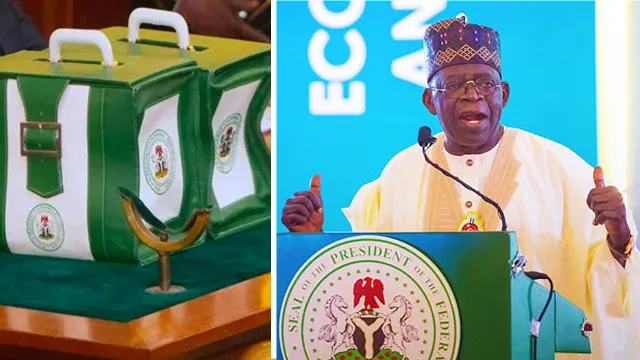The National Assembly will likely see a larger version of the N27.5 trillion 2024 Appropriations Bill if revenue increases, the Federal Government informed the Senate.
Speaking yesterday in Abuja, the Coordinating Minister of Economy and Minister of Finance, Mr. Wale Edun, stated that the Federal Government would have no choice but to go back to the National Assembly to appropriate the additional revenue due to the significant improvement in the economy and if the revenue increases. The Committee on Finance for Budget Defense was led by Senator Sani Musa (APC, Niger East).
The Minister stated: “It is anticipated that the revenue performance will remain encouraging, as it was.” A committee on tax reform and fiscal policy is already in existence and operating. It is intended to bring about significant transformation in addition to digitization and increased efficiency in debt collection as it generates income that may allow us to raise this budget.
“If we perform well in terms of revenue, we will return, and I do not doubt that Mr. President will approve the procedure to bring the matter back to the National Assembly for additional funding.” We are all looking forward to that circumstance.
Read Also: We have not filled petition to challenge kogi gubernatorial polls, AA Tells Nigerians.
Remember that on Wednesday, the penultimate, President Tinubu presented before the National Assembly a proposal for spending totaling N27.5 trillion for the 2024 Appropriations Bill. He also declared that his administration would adopt the “revised 2024-2026 Medium Term Expenditure Framework, MTEF, and Fiscal Strategy Paper, FSP” as the guidelines for the 2024 budget, and that the administration would grow the economy by at least 3.76 percent, above the projected global average.
Going on, Edun stated that the Federal Government was investigating ways to expedite the procurement process to boost capital expenditures in the budget for 2024.
The speaker stated: “When we look at actual budget performance, expenditure as of September, the third quarter of the year, was 32% below the budget estimate. Revenue was 5% up, which is quite encouraging. Debt service was up 18% due to a change in exchange rates, a depreciation of the currency, and the fact that we have approximately $46 billion in outstanding foreign debt.”
Capital spending considerably underperformed the budget. To maintain the overall budget balance, we are investigating the procurement process and methods for accelerating capital investment.
The fiscal deficit is predicted to decrease from N13.7 trillion to N9.2 trillion. More significantly, the deficit means that less of the budget will need to be financed by borrowing, from 6.1 percent of GDP to 3.9 percent. Capital expenditures will still account for 32% of the budget.

